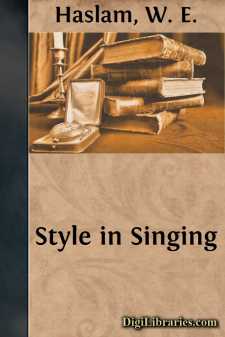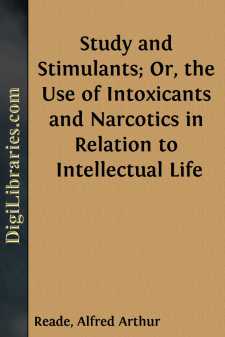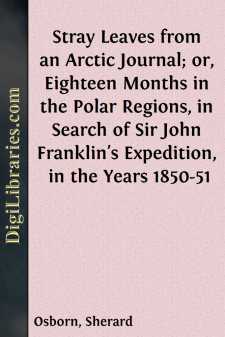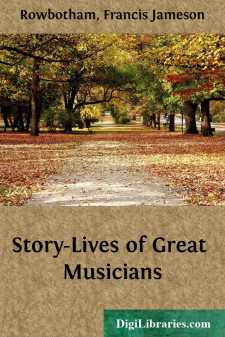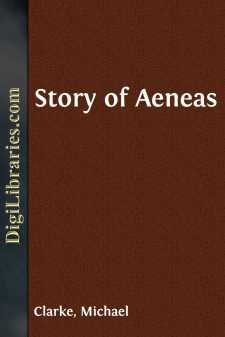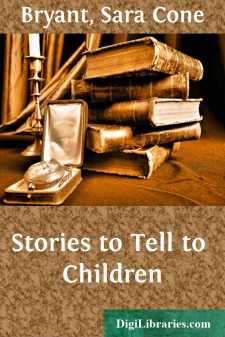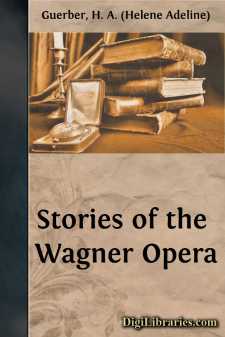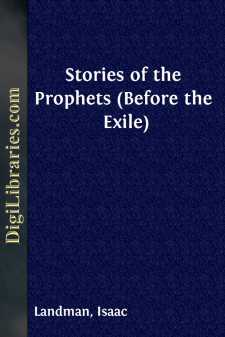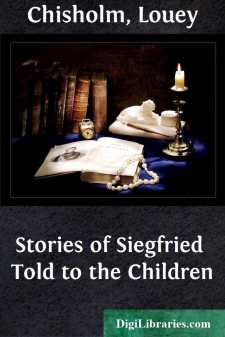Non-Classifiable
- Non-Classifiable 1768
Non-Classifiable Books
Sort by:
by:
W. E. Haslam
PREFATORY NOTE “OF making many books there is no end.” Surely, the weary observation of the sage must have an especial application to the literature of Song. One could not number the books—anatomical, physiological, philosophical—on the Voice. A spacious library could easily be furnished with “Methods” of Singing. Works treating of the laws governing the effective interpretation of...
more...
I have no experience whatever respecting tobacco: my general opinion is adverse to its use by a healthy man; but that opinion is not founded on any personal experience, nor on any scientific knowledge, as to give it any value for others. My opinion respecting alcohol is that it is a valuable and necessary ingredient in forming and preserving some articles of diet—yeast bread, for example, which can...
more...
by:
Sherard Osborn
AN ARCTIC JOURNAL. The evils attendant on a hurried outfit and departure, as is the usual man-of-war custom, were in no wise mitigated in the case of the Royal Naval Expedition, fitted out at Woolwich, in 1850, to search for Sir John Franklin's Squadron; and a general feeling of joy at our departure prevailed amongst us, when, one fine morning, we broke ground from Greenhithe. The...
more...
by:
Henry J. Horn
INTRODUCTION. BY THE EDITOR. In placing before the public a work with such novel and extraordinary demands upon its consideration, a few explanatory words seem appropriate. Its title and contents will doubtless at first sight cause a smile of incredulity, and will be regarded by many as one of the devices which are sometimes put forward to entrap an unsuspecting public into the perusal of a sensational...
more...
BACH hristoph, I wish you would let me have that book of manuscript music which you have in your cupboard—the one which contains pieces by Pachelbel, and Frohberger, and Buxtehude, and ever so many others—you know which I mean. I will take such care of it if you will only lend it to me for a little while.' Christoph was about to leave the room, but he turned sharply to his little brother as...
more...
by:
Michael Clarke
I. VERGIL, THE PRINCE OF LATIN POETS. The story of AE-ne'as, as related by the Roman poet Ver'gil in his celebrated poem called the AE-ne'id, which we are to tell about in this book, is one of the most interesting of the myths or legends that have come down to us from ancient authors. Vergil lived in the time of the Roman Emperor Au-gus'tus (63 B. C.—14 A. D.), grand-nephew and...
more...
by:
Sara Cone Bryant
SOME SUGGESTIONS FOR THE STORY-TELLER Concerning the fundamental points of method in telling a story, I have little to add to the principles which I have already stated as necessary, in my opinion, in the book of which this is, in a way, the continuation. But in the two years which have passed since that book was written, I have had the happiness of working on stories and the telling of them, among...
more...
RIENZI, Wagner was greatly troubled in the beginning of his career about the choice of subjects for his operas. His first famous work, ‘Rienzi,’ is founded upon the same historical basis as Bulwer's novel bearing the same name, and is a tragic opera in five acts. The composer wrote the poem and the first two acts of the score in 1838, during his residence at Riga, and from there carried it...
more...
by:
Isaac Landman
FOREWORD The company of inspired men, commonly known as the prophets of Israel, were the unique product of the Jewish religious genius. They were pre-eminently preachers of righteousness. Fearless and undaunted, they told the house of Israel their sins and the house of Jacob their transgressions. They contemplated the facts of life from the highest point of view. For them religion and morality were...
more...
by:
Louey Chisholm
CHAPTER I Siegfried was born a Prince and grew to be a hero, a hero with a heart of gold. Though he could fight, and was as strong as any lion, yet he could love too and be as gentle as a child. The father and mother of the hero-boy lived in a strong castle near the banks of the great Rhine river. Siegmund, his father, was a rich king, Sieglinde, his mother, a beautiful queen, and dearly did they love...
more...


